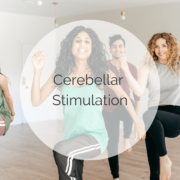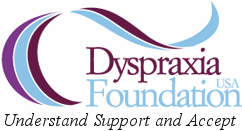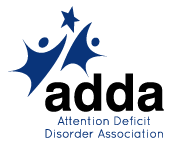Holidays 2021 – Be Prepared!
We are about to enter many people’s favorite time for the year – from Thanksgiving to New Year. I get it; being thankful, appreciating friends, family, and other blessings you may have in your life, good cheer toward humanity, hopefulness about the upcoming year. All good things!
But not all people love everything about this time of year. For the neurodiverse (meaning ADHD, ASD, Dyslexia, Dyspraxia, and others), this time of year can be exciting and overwhelming.
My daughter is easily over-stimulated. Sounds and smells are triggers for her, as well as large crowds. She wants to be part of social gatherings, Christmas Eve Mass, and family gatherings, but she needs to prepare herself for withstanding them.
People with NDs are more sensitive to their emotions and their senses.
Here are some of the sensitivities family members or even the ND person themself may not be aware of:
- You may block out noise that can be overwhelming, from crying babies to lots of people talking to loud music, which physically hurts their ears.
- You may not notice the smells that can be overwhelming, from incense to cooking to body order in crowds, which is so distracting they can’t focus.
- You may not be bothered by visual stimuli, from bright lights to flashing lights to too many decorations, which physically hurts your eyes.
- Crowds can cause social anxiety from Thanksgiving dinner to shopping malls to holiday parties which makes them freeze.
- Other people breaking “rules” can be intolerable.
- Too many choices of social events to attend, people to visit, or gifts to buy can drain executive function skills.
- Emotions – sensitivity to both positive and negative emotions. Positive emotions they might talk too loudly, overeat, be impulsive, not catch others’ social cues. Negative emotions they might react too quickly with irritated my senses, feel judged, be anxious, and so on.
These sensitivities are draining to their executive function skills.
What to consider for yourself or a loved one who is neurodiverse?
- If traditions are going to be dropped or added, talk about them in advance. Explain why and consider a compromise.
- Going somewhere crowded?
- Shopping – make a plan: what needs to be bought, what stores need to be visited, how long it will take, what time is best to go shopping. Do you need to go to a store, or can you shop online?
- Party or social gathering – Consider these ideas to guide preparation:
- Talk about who will be there.
- Practice small-talk or conversation starters
- Figure out what oversharing looks like
- How long you will stay?
- Is there a place to retreat if a break is needed?
- Do you need headphones? Sunglasses?
- Can you talk to the host about the volume of music?
- Religious Service-
- What value am I supporting by participating in this service?
- Is there a quieter(less busy) service?
- When is a good time to leave if you need a break?
- Where to go if you need a break?
- How long is a break?
- What coping skill works best in this situation?
- Have guests over?
- Talk to friends and family about reducing overwhelm.
- Keep it low-key.
- Learn or teach how to politely retreat who you need a break from activities.
- Dress comfortably – if you know you are going into an over-stimulating situation besides making a plan about the wheres, whos, whats, and hows, you might consider dressing in clothes that you find comforting.
- Praise and love – if you are the loved one of someone, check in with your loved one to see how they are doing. Respect when they need a break or need to leave an event. Many ND people describe being over-stimulated as physically painful.
- Holiday decorations – some people may be excited about decorating, and others may find it overstimulating. You may want to have a plan about completing decorating. Or you may want to add decorations slowly or keep a space in the home that doesn’t change. Visual stimuli can be overstimulating as well. Flashing Christmas tree lights drive me nuts!
- Time alone – If you or a loved one will need some time alone to center yourself, make a plan in advance.
- When is a good time to step away?
- How many events do you need/want to participant in?
- What helps you center yourself?
- Managing Expectations – What is it that you really want from the holidays? How can you play a part in making that happen? If you don’t achieve that, what will allow you to enjoy the holidays still?
Sometimes, people who are ND are enthusiastic about being with people they love or don’t often see, and they tend to be too clingy or too loud. It is often hard for them to notice at the moment, so develop a key phrase or visual cue to remind them without embarrassing anyone.
Happy Holidays!

Big Bang Coaching, LLC provides coaching for the neurodiverse.










